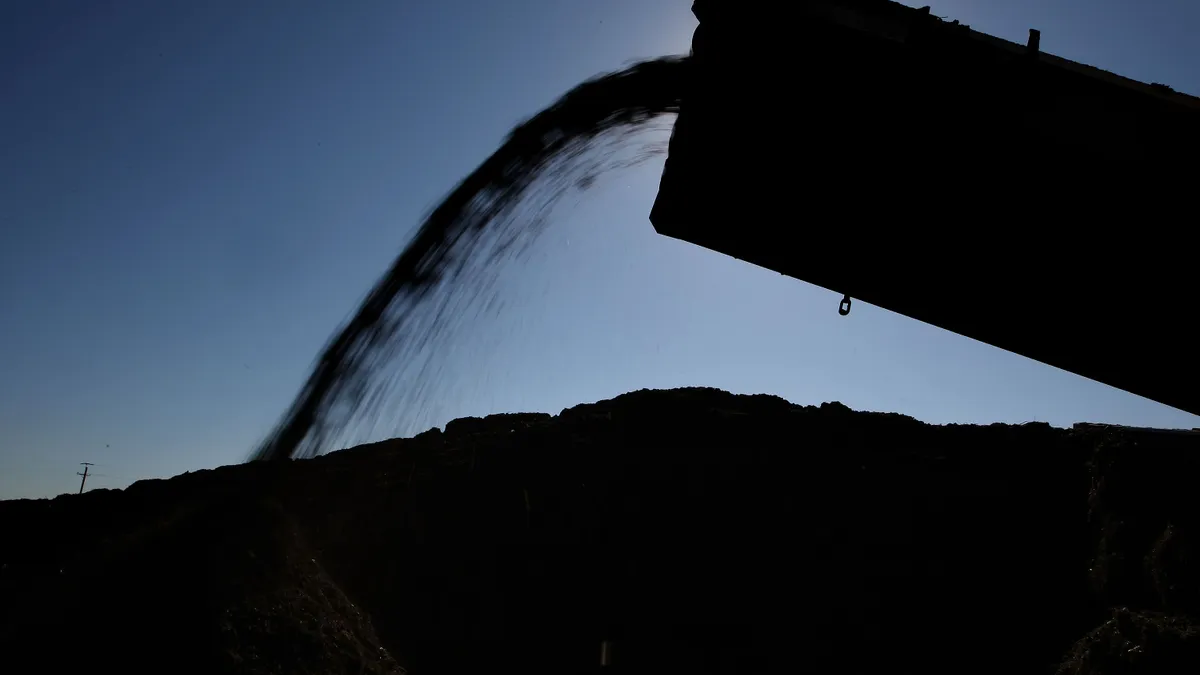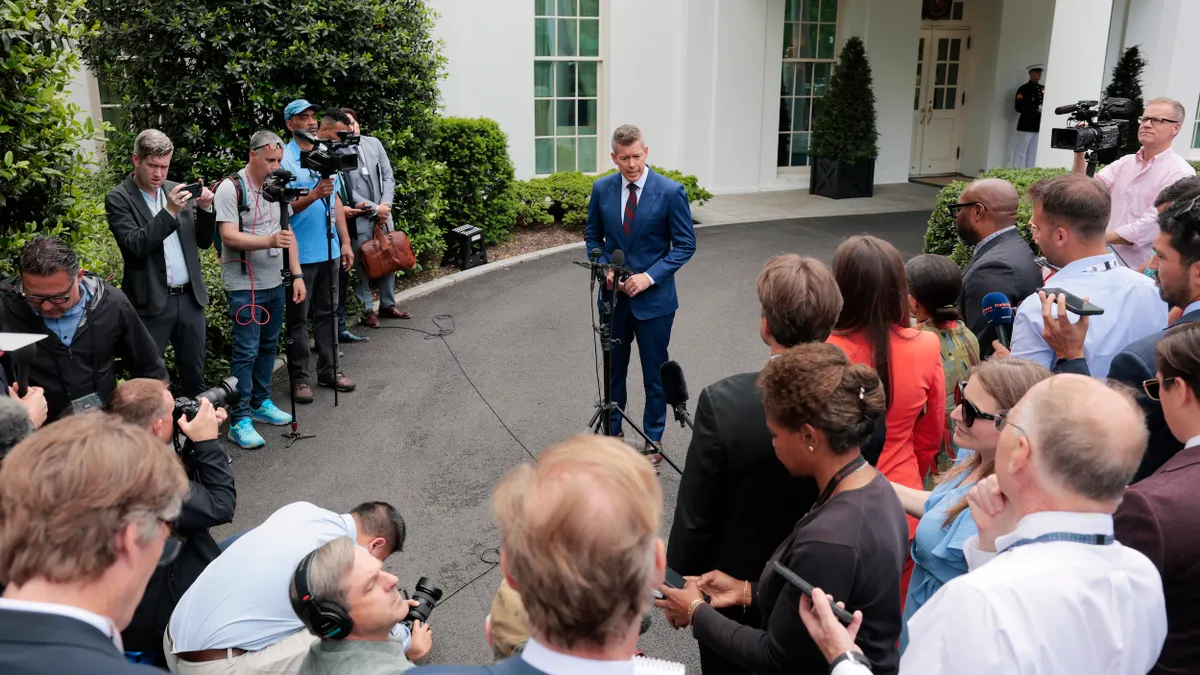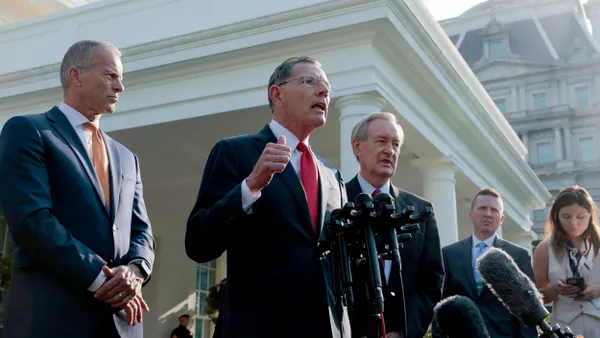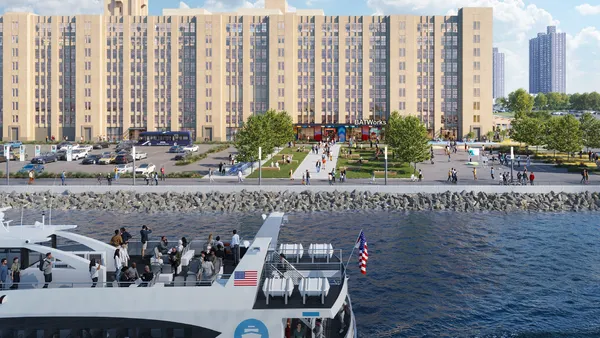More and more local governments in the United States are considering an organics recycling or composting program, thanks in part to growing incentives and a desire to move away from landfilling and incineration. But creating such programs comes with unique challenges. Groups like the Composting Consortium are hoping to provide solutions.
The Composting Consortium, a project of Closed Loop Partners that is affiliated with multiple composters and trade groups, recently released a pair of new resources for local officials looking to start their own organics recycling program.
A blueprint, co-published with Colorado-based nonprofit recycler Eco-Cycle, provides an introduction to the topic and common pitfalls for officials to avoid when beginning programs of their own. The Composting Consortium also launched a new municipal partner platform designed to connect local leaders to share knowledge and identify solutions to common problems like contamination.
Paula Luu, senior policy director for Closed Loop Partners’ Center for the Circular Economy, and Rachel Setzke, senior policy and research associate at Eco-Cycle, discussed the new resources with Smart Cities Dive sister publication Waste Dive. They also shared guidance for officials looking to get more involved in composting.
This conversation has been edited for clarity and length.
WASTE DIVE: What do you think is the biggest barrier preventing municipalities from implementing or expanding organics programs today?
PAULA LUU: There's been a dramatic increase in the number of collection programs rolling out to municipalities. I think that largely stems from changes in policy — more specifically, statewide policies or municipal ordinances that ban food waste from landfill or require food waste generators to divert food waste from landfill.
When we worked with BioCycle on a data project to understand how collection and infrastructure for composting has changed, we saw a 49% increase in the number of programs that have rolled out from 2021 to 2023. That stems from these types of policies passing.
I think the challenges for starting programs in the absence of policies are very local factors. Everything from what the landfill tipping fee costs — knowing that composting operations are likely to have to compete with that cost — as well as resources available, the landscape of smaller and suitable sites and then the permitting landscape to set up composting sites if they can't be retrofitted to accept food waste locally and near to where the food waste was generated.
RACHEL SETZKE: On a broader look, my understanding of the municipal barriers is just overall funding for composting, capacity and lack of knowledge about how to implement such a program. We know that there's a lot of interest out there, both from municipalities and from small businesses, to get new programs going and expand programs. But often you've got municipal staff that are charged with doing organics sustainability in general. They might have a lot of hats they're wearing. Same with elected officials; they might know that this is a good thing to do, but they don't necessarily have the understanding or tools to do it.
Hopefully this toolkit can really help get that ball rolling to give a basic understanding of how to go about looking at organics programs and how to start the process.
Talk to me about that municipal partner platform and how you anticipate it will help users develop and create these kinds of programs in their own municipalities.
LUU: The announcement of the municipal partner platform represents the Composting Consortium’s commitment to working with and creating space for different municipalities to learn from one another [and] to learn from us and the insights that we’ve gained. We're doing that in partnership with a big tent of partners: bringing in our corporate partners, bringing in our composters, bringing in our academic institutions that can all contribute to knowledge-sharing and sharing best practices.
The platform is entirely flexible, organic, but also intentional. It can be as bespoke as two cities being connected to the platform and then taking conversations offline. But at the same time, we're also creating programming for multiple municipalities to gather together and do a deep dive on a topic like contamination mitigation. It's really a starting point for bringing together groups, but then the intention is to build stronger relationships and connectivity for information flow between two municipalities.
I thought it was interesting that the blueprint recommended not taking policies like these organic programs to a popular vote because of potential misinformation and the complexity of the topic. How would you recommend municipalities combat that sort of misinformation to educate residents and get them on board with organics programs?
SETZKE: That is a recommendation we based on initiatives we have seen in Colorado. We've seen one instance where two different municipalities were looking at the same type of ordinance: one went to a ballot, one went to a city council vote. There were just so many details and so much opportunity for confusion on the nitty gritty of it. The city councilors making the decisions were able to become educated and make an educated choice. Whereas in the ballot initiative, there was misinformation put out and the voters then killed that ballot issue.
There's all sorts of reasons for a community to implement some level of organics program, and there are lots of folks and tools to learn from.

Rachel Setzke
Regardless of how you're making the decision, engaging the stakeholders is vital — and engaging them from the beginning of the process. Have focus groups, get information out through the channels that your community relies on — whether it's web pages, surveys or farmers markets. Getting together with the community is important.
Do you think it's possible for a smaller municipality to get to a place where it can enact a zero waste ordinance or similar policy? Or do you think the dynamics of working in a smaller municipality prevent them from being able to reach that level?
SETZKE: The municipalities I can think of [that have a universal zero waste ordinance] are larger, but I don't know why a smaller municipality couldn't do that. Really, it hinges on having communication with the entities that you're targeting in your ordinance — your restaurants, your grocery stores, whatever entities you're looking at — having those relationships and working through how that ordinance might fit your community.
I don't think town size is a limiting factor for creating circularity in organics.

Paula Luu
LUU: I'm from the state of California and I think there are several examples, albeit California has a state mandate through SB 1383 to divert food waste from landfill. Municipalities of every size in that state are complying through local ordinances.
In small towns where there's smaller populations but tight-knit communities, I think the political will to set up these programs, either publicly or privately, might very well exist. There are examples of that in small mountain towns in Colorado. I don't think town size is a limiting factor for creating circularity in organics. It's just a matter of getting the right stakeholders and infrastructure plan in place.
SETZKE: It also depends on what the goals of the program are. On its face, the goal is to get organics out of landfills, but you might have a local context that might be driving that. You might have a very agriculture-focused community and you want to get those valuable materials back onto the soil. You might have a local landfill that's nearing its closure date. That can be a motivating factor that can drive small or large communities to take action.
LUU: Understanding which operators today exist in the municipality or in the region and what their acceptance policies for feedstocks are is step one. From there, I think it's understanding what their goals are and also the motivation of the composters or the processors.
In some cases, there's composters who intend to fully focus on selling into the organic compost market. For the time being, USDA [National Organic Standards Board] rules prohibit the addition of compostable packaging if you're selling into organic compost markets. That's why a lot of California composters, as an example, don't allow for compostables to be in that stream.
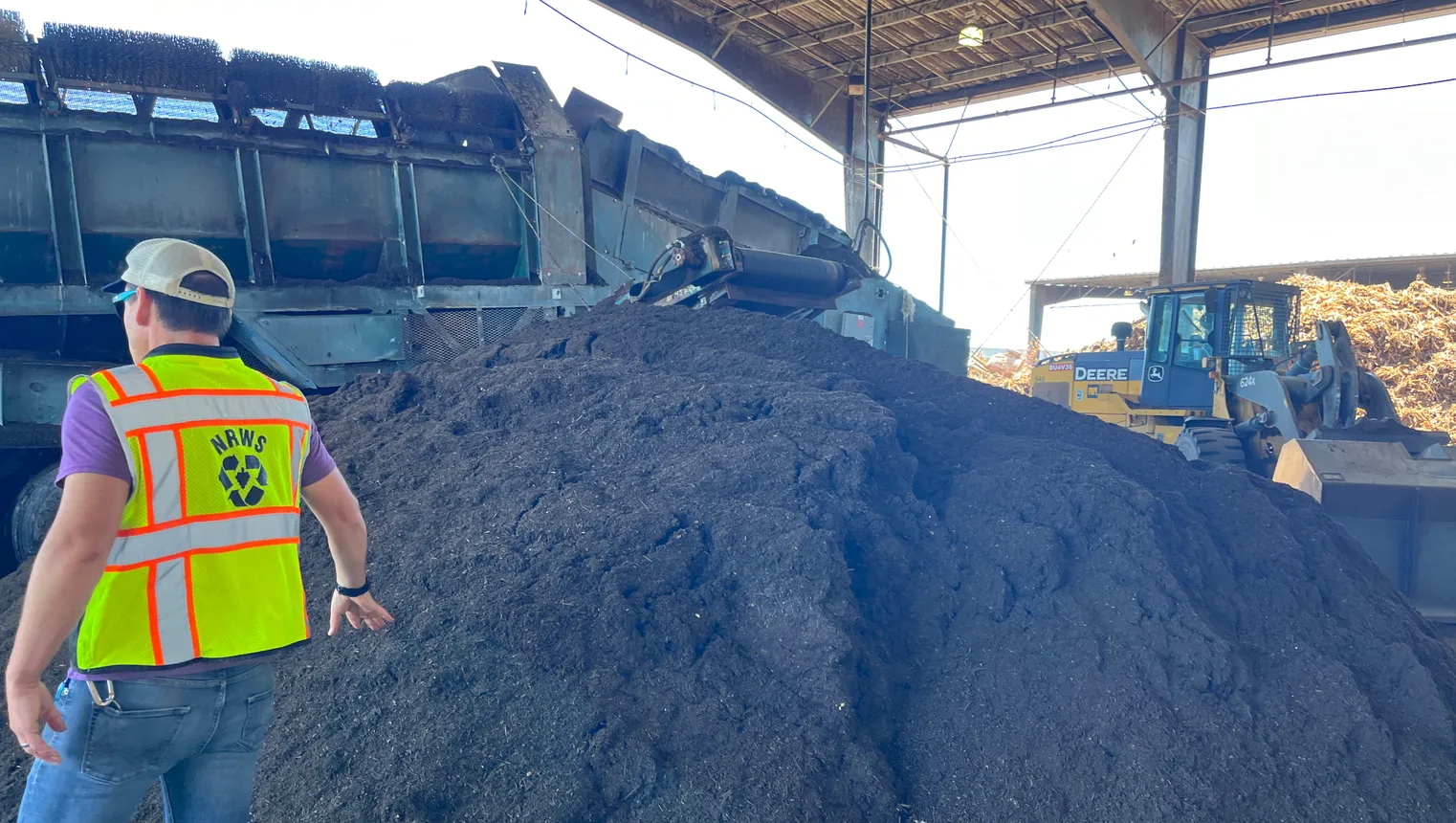
A lot of the concerns around contamination, I think, could be adequately managed through the legal contracts that exist between the municipality and hauler or municipality and composter. We saw that as we were collecting information on how different municipalities have set up their contracts with different vendors. The most common language that we saw within those contracts noted a threshold for contamination which would allow the composter or the hauler to reject those loads.
The best practices that we saw in contracts also allowed for compensation when contamination did find its way to the facility in order to incentivize all stakeholders in that value chain to support clean streams. That's ultimately what it's about. Compostable packaging is not a contaminant when processed correctly, it's just a vehicle for moving food waste away from landfill and to produce compost.
SETZKE: If one of your goals is driving circularity, we want to think about other programs as well that are hopefully working in tandem with an organics program. So looking at reuse systems to reduce single-use materials altogether. Another thing to consider in addition to what your composter or processor is able to accept, think about the systems for collection.
In Colorado we've got small, boutique composters that are really engaged with their clientele. They're able to educate their subscribers really well about what is and what isn't acceptable. Some of those composters are able to accept more certified compostable material.
Whereas if you've got a larger city program, like we see a lot in the Front Range of Colorado, that's great because that engages a lot of people to compost. But that also has less connection between the hauler and the customers who are throwing those materials in the bins, so you run a higher risk of having contamination if you're allowing compostable packaging.
Generally speaking, what advice would you have for an official in a town looking to get started on an organics program?
LUU: Know that we’re in the early days of transforming the composting infrastructure in the United States. They’re part of an innovative group to set up these collection programs. There's a lot to learn, and there's also a lot of communities to learn from.
I think the rollout of different collection programs may not be 100% perfect, but it's really encouraging to see just how quickly these programs are being set up. Resources like the blueprint, like the Composing Consortium’s municipal partner platform, are really starting to crop up in service of the infrastructure transformation that we're seeing. Look for those resources and opportunities because you're not the first to start these programs.
SETZKE: That point can't be underscored enough. While we are in the early-ish days of composting, there are great examples all over the country: small towns, large cities, all areas of the country to look to. That would be one piece of advice, is to look to your neighbors and your peer communities around the country, whoever you identify with, and see what they're doing.
I would also say to remember all of the values of implementing a compost program. Whatever resonates with your community, whether it's simply saving space in your landfill or if your community is open to arguments that diverting organics from landfills is one of the best climate change solutions we have. There's all sorts of reasons for a community to implement some level of organics program, and there are lots of folks and tools to learn from.



